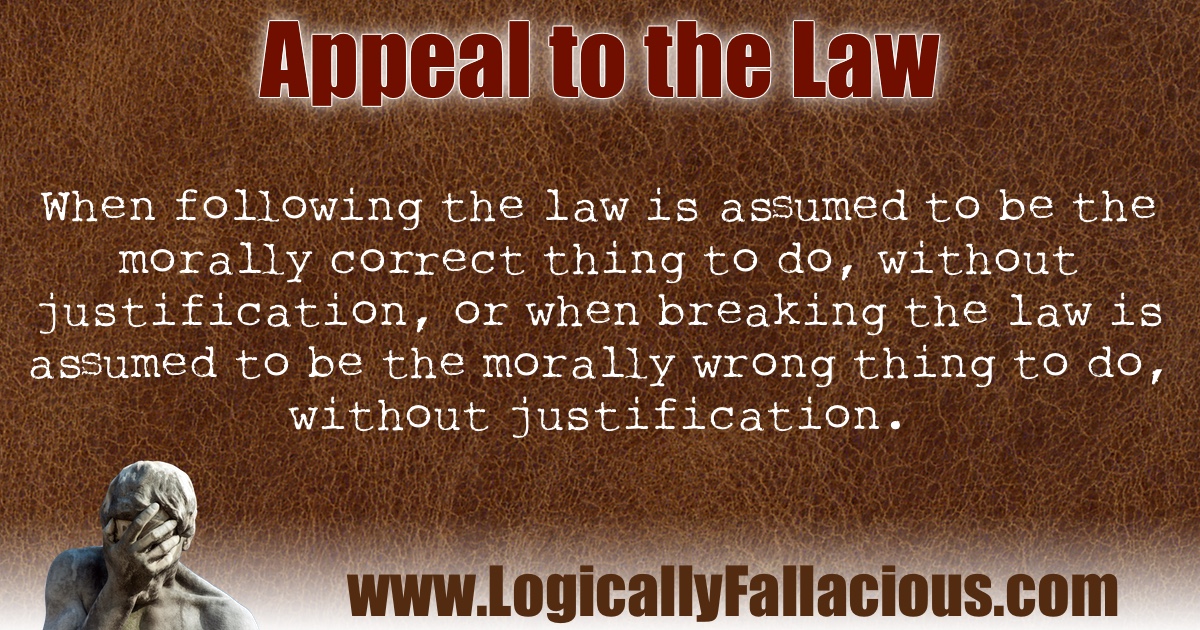Description: When following the law is assumed to be the morally correct thing to do, without justification, or when breaking the law is assumed to be the morally wrong thing to do, without justification.
Logical Forms:
X is illegal. Therefore, it is immoral.
Y is legal. Therefore, it is moral.
Example #1:
Tom: I plan on chaining myself to the bulldozer so they can't knock down the senior center.
Judy: That's just wrong. You'll get arrested. Don't be a bad person!
Explanation: Civil disobedience is just one example of something that is illegal but does not have to be immoral. Laws are created for many reasons, and only some are created for "moral" reasons (according to someone's moral code).
Example #2:
Lucy: I cheated on my husband the other night.
Rob: Why did you do that!?
Lucy: Calm down! It's not like cheating is illegal or anything.
Explanation: Again, the law and one's moral code are not the same things. While there does tend to be overlap, assuming illegal is immoral or legal is moral without a rational argument connecting the two concepts, is fallacious.
Exception: Sometimes what is illegal is clearly immoral, and no justification is required. For example, if someone were to say, "How could you kick that old lady while laughing? That is a horrible thing to do, and you can go to jail!"
Tip: Laws become archaic when they do not keep up with social norms and cultural changes. What was once deemed "immoral" could easily change to "moral" within a few years and vice versa. Never simply assume that laws are good and right; demand justification.

This is an original logical fallacy named by the author.